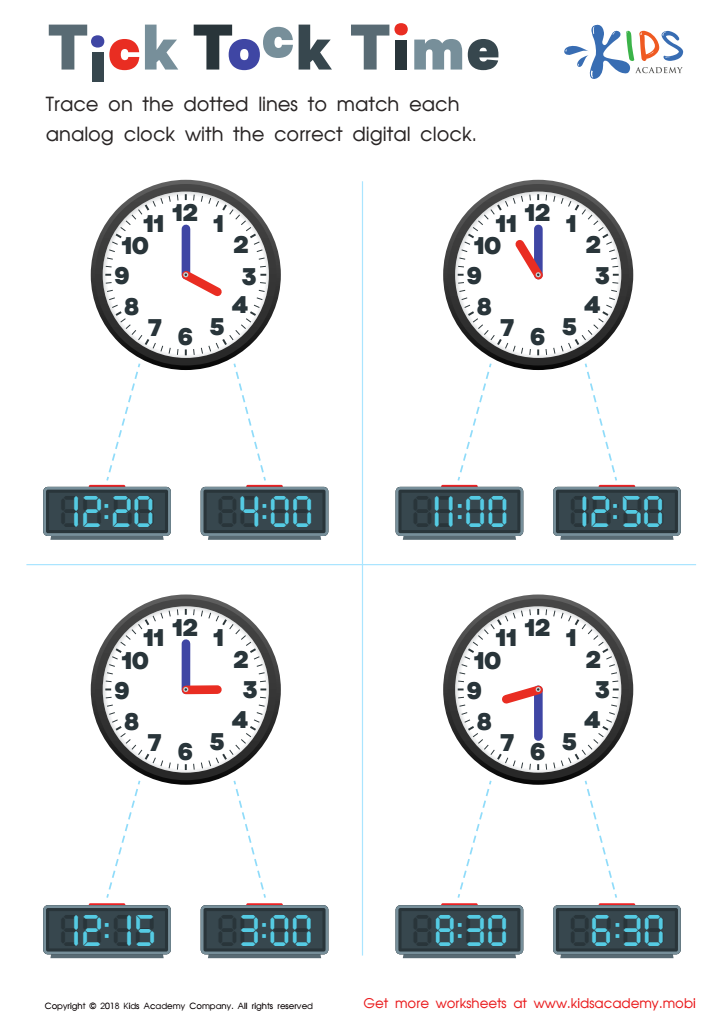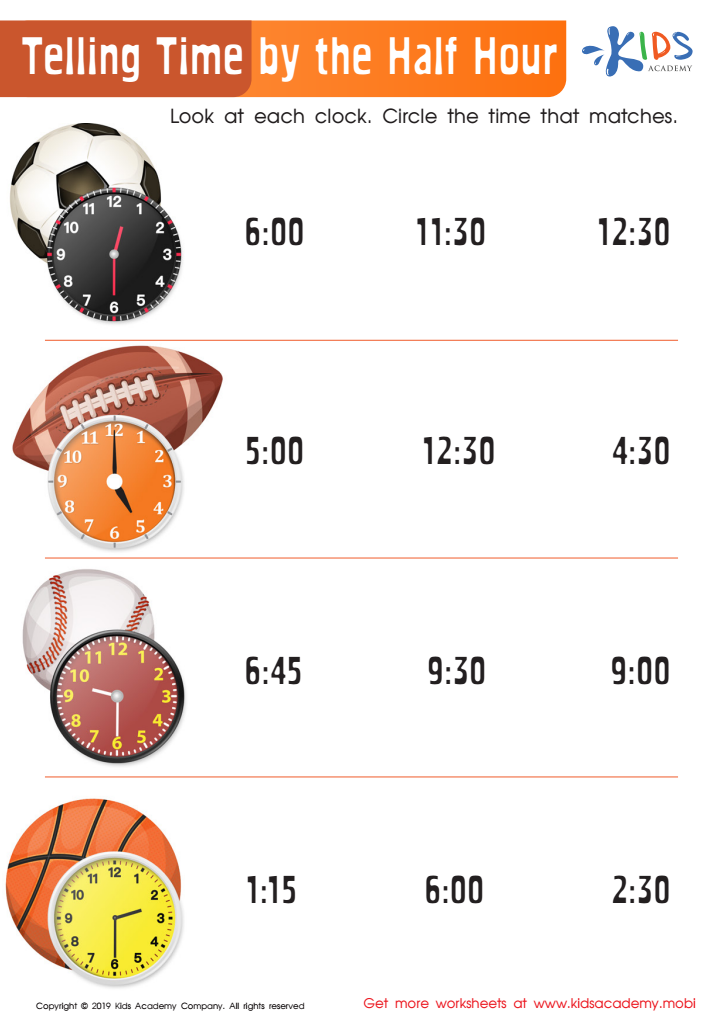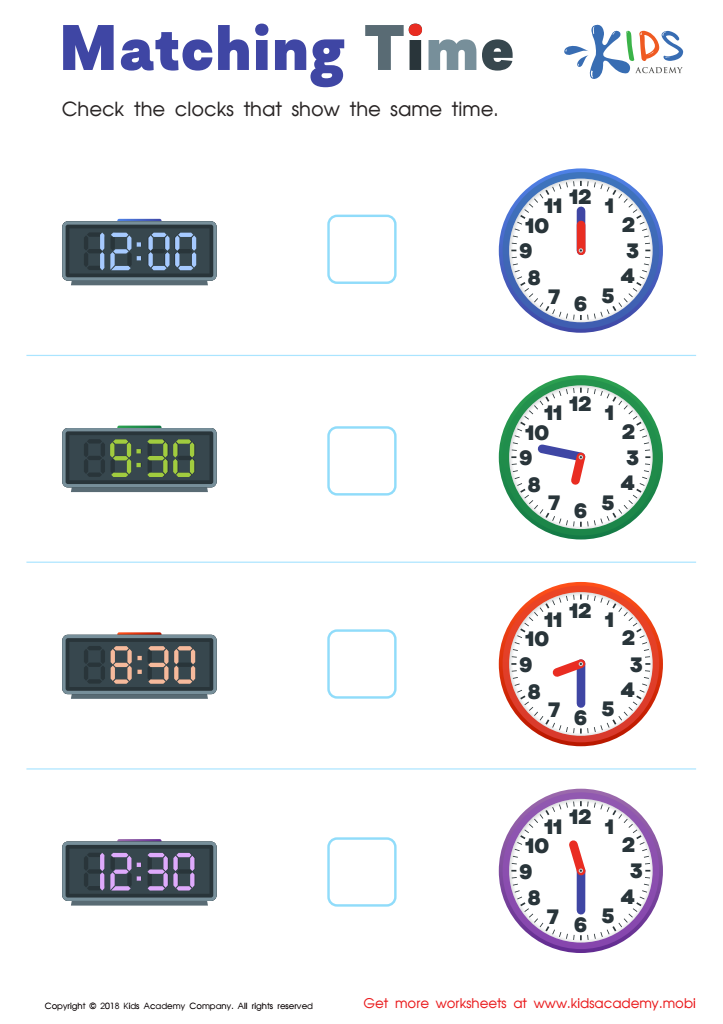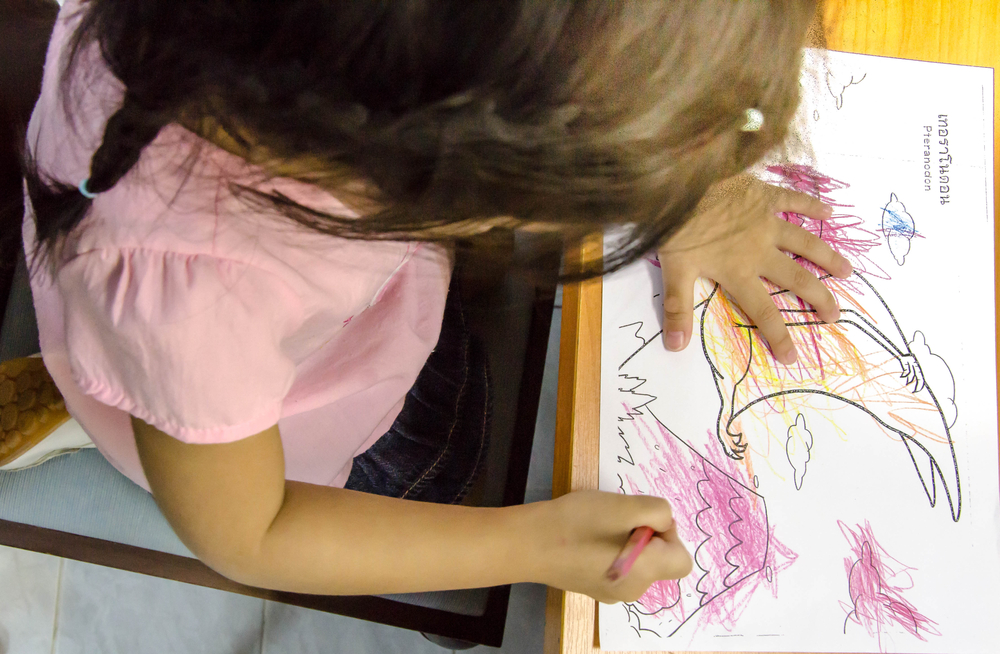Time recognition Time Worksheets for Ages 7-8
3 filtered results
-
From - To
Explore our engaging Time Recognition worksheets designed specifically for children ages 7-8! Our printable activities help young learners master the concept of telling time, from reading analog clocks to understanding digital formats. With a variety of exercises tailored to enhance their skills, students will enjoy learning the importance of time in daily life. Each worksheet is thoughtfully crafted to encourage hands-on practice, boost confidence, and streamline learning at home or in the classroom. Perfect for reinforcing math fundamentals, these effective resources align with core educational standards. Transform time-telling challenges into fun learning experiences today!


Tick Tock Time Worksheet


Telling Time by the Half Hour Worksheet


Matching Time Worksheet
Time recognition is a crucial skill for children ages 7 to 8, as it forms the foundation for future learning and daily functioning. At this age, kids are often beginning to understand the concepts of time—reading analog and digital clocks, grasping the differences between hours and minutes, and recognizing the significance of scheduling their day.
Fostering an understanding of time helps children gain a sense of responsibility and independence. By recognizing how to manage their time, they can better allocate it for homework, chores, and leisure activities. This skill not only aids in the development of organizational capabilities but also promotes self-discipline as children learn to prioritize tasks and stick to deadlines.
Moreover, in a world that often divides activities into timed events, an accurate understanding of time can enhance children’s social interactions. Whether it’s knowing when to join classmates for a game or completing an assignment by a set deadline, time recognition impacts their day-to-day experiences.
Therefore, parents and teachers play a pivotal role in helping children develop this critical skill through everyday conversations, playful activities, and engaging resources, ensuring children grow into competent, confident individuals navigating their responsibilities and fostering lifelong time management skills.
 Assign to My Students
Assign to My Students
















